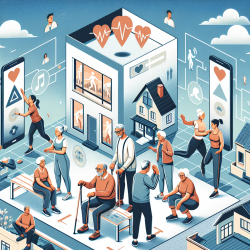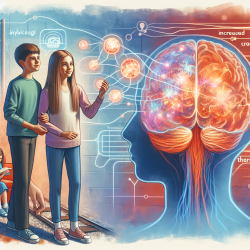Introduction
As the global population ages, the incidence of frailty and disability among older adults is increasing. To combat this, multicomponent lifestyle interventions are being developed to promote healthy aging. However, the COVID-19 pandemic has necessitated a shift towards remote interventions, such as mobile health (mHealth) programs, to maintain physical activity among frail older adults. A recent study, "Co-designing implementation strategies to promote remote physical activity programs in frail older community-dwellers," offers valuable insights into how these programs can be effectively implemented.
Key Findings from the Research
The study utilized a mixed-methods approach, incorporating both qualitative and quantitative data, to identify and prioritize implementation strategies for remote physical activity programs. The research involved older adults, community professionals, and health professionals, highlighting the importance of stakeholder engagement in the co-design process.
Key strategies identified include:
- Digital Literacy and Capability Assessment: Assessing and enhancing digital literacy among older adults is crucial for the successful implementation of mHealth interventions.
- Family and Community Support: Involving family members and community volunteers to provide technological support can help overcome barriers to technology adoption.
- Personalized and Group Exercises: Offering personalized exercise plans and facilitating small group virtual exercise sessions can enhance engagement and adherence.
- Regular Follow-up: Weekly telephone follow-ups by healthcare professionals can provide motivation and ensure adherence to the program.
Practical Applications for Practitioners
For practitioners looking to implement remote physical activity programs for frail older adults, the study provides a roadmap of prioritized strategies that balance feasibility and impact. Here are some practical steps practitioners can take:
- Conduct Digital Literacy Workshops: Organize workshops to assess and improve the digital skills of older adults, ensuring they can effectively use mHealth applications.
- Engage Family and Community Networks: Collaborate with family members and local community groups to provide ongoing technological support and encouragement.
- Design Personalized Exercise Plans: Work with healthcare professionals to develop personalized exercise plans that cater to the individual needs and capabilities of older adults.
- Facilitate Virtual Exercise Groups: Create small virtual exercise groups that allow for social interaction and personalized attention, enhancing motivation and adherence.
- Implement Regular Check-ins: Schedule regular follow-ups with participants to monitor progress, address concerns, and provide motivation.
Encouraging Further Research
While the study provides a solid foundation for implementing remote physical activity programs, further research is needed to explore the long-term sustainability and scalability of these interventions. Practitioners are encouraged to engage in ongoing research and collaboration to refine and adapt these strategies to different contexts and populations.
To read the original research paper, please follow this link: Co-designing implementation strategies to promote remote physical activity programs in frail older community-dwellers.










